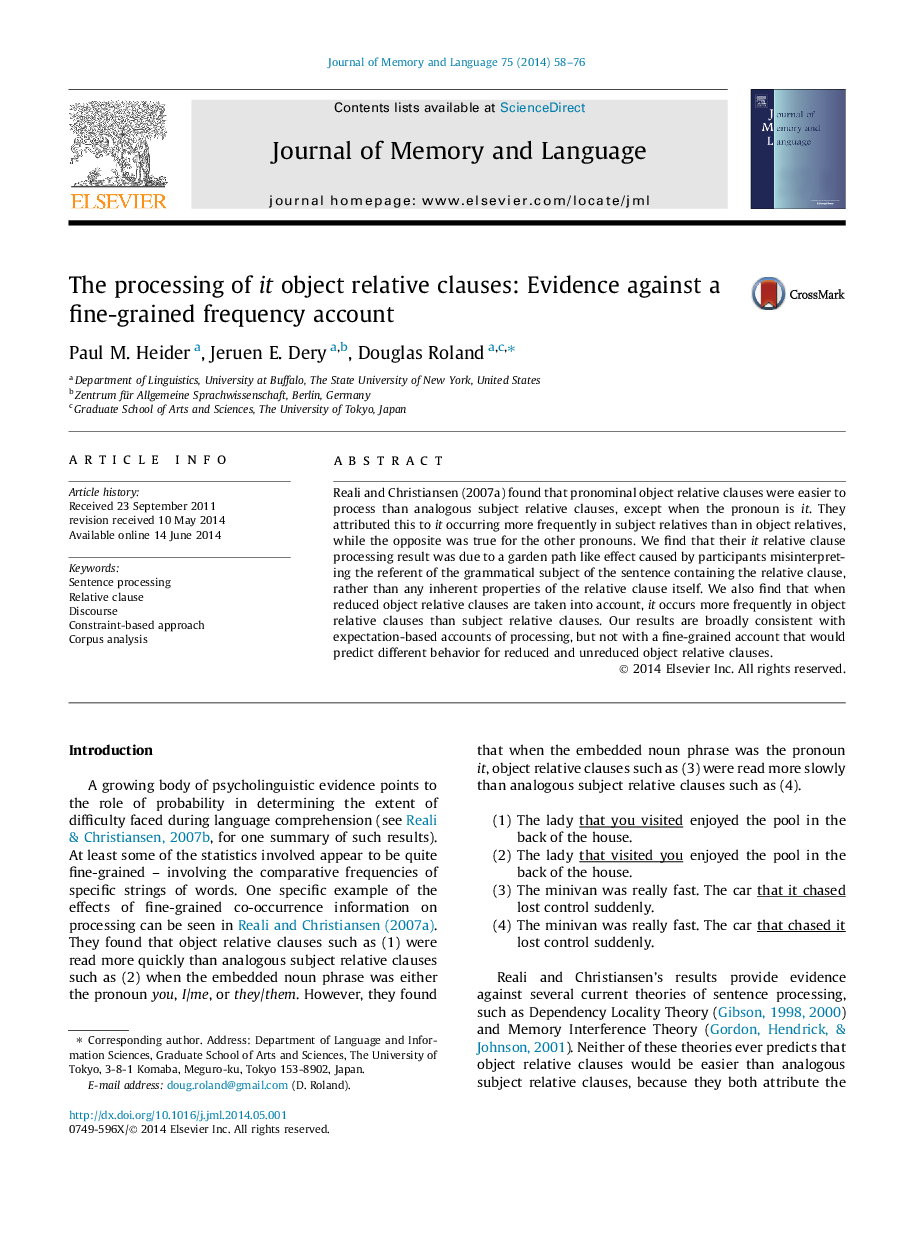| Article ID | Journal | Published Year | Pages | File Type |
|---|---|---|---|---|
| 931832 | Journal of Memory and Language | 2014 | 19 Pages |
•We investigate reported differences between it and other pronominal relative clauses.•We find previous reading time and corpus analyses to be affected by confounds.•It object relatives are easier to process, more frequent than it subject relatives.•Comprehenders are not sensitive to some distributional properties of language.•“Object relative clause processing difficulty” is due to multiple causes.
Reali and Christiansen (2007a) found that pronominal object relative clauses were easier to process than analogous subject relative clauses, except when the pronoun is it. They attributed this to it occurring more frequently in subject relatives than in object relatives, while the opposite was true for the other pronouns. We find that their it relative clause processing result was due to a garden path like effect caused by participants misinterpreting the referent of the grammatical subject of the sentence containing the relative clause, rather than any inherent properties of the relative clause itself. We also find that when reduced object relative clauses are taken into account, it occurs more frequently in object relative clauses than subject relative clauses. Our results are broadly consistent with expectation-based accounts of processing, but not with a fine-grained account that would predict different behavior for reduced and unreduced object relative clauses.
